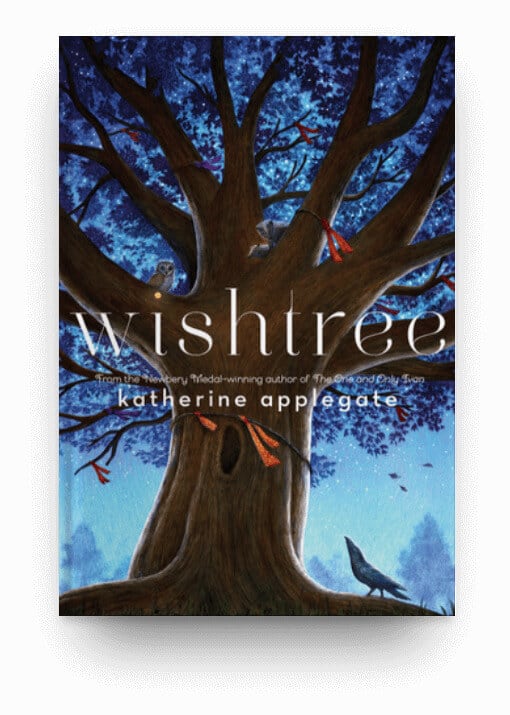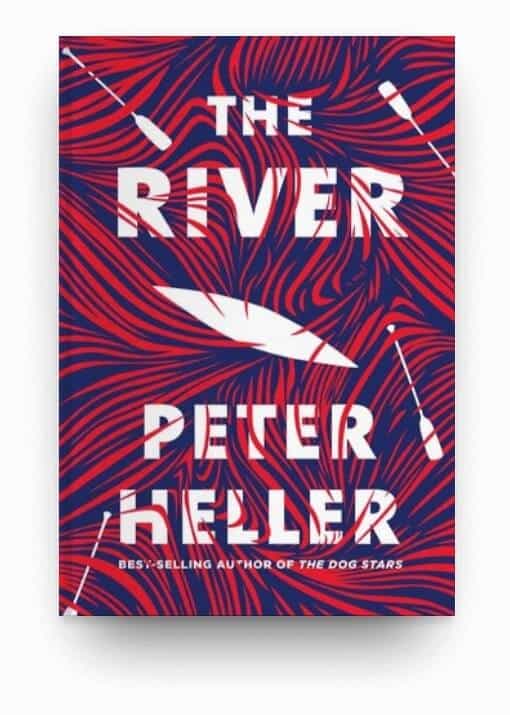13 Eco-Fiction Novels to Read for Earth Month
These eco-fiction books are perfect choices if you’re looking for climate change novels, environmental fiction, and books about nature.
This post may include affiliate links. That means if you click and make a purchase, I may earn a small commission. Please see Disclosures for more information.
The eco-fiction books on this reading list are perfect choices if you’re looking for climate change novels or environmental fiction. These books about nature range from dystopias to stories heavily grounded in the natural world. Pick these up during Earth Month (April) or anytime of year.
April is Earth Month (with Earth Day falling on April 22), and the emerging spring is an excellent time to pick up a book that takes you back to nature.
This time of year is when many of us emerge from our winter cocoons and reacquaint ourselves with the outside world (kudos to you if you’re out in the elements year-round!).
I am a long-time nature lover, but I must admit to a tendency to stay warm and cozy inside for much of the winter–usually curled up with a book, of course.
(Lest you accuse me of being totally soft, there was a time in college when I braved the winter mornings at 5:30 am to train with the crew team–in Minnesota. I’ve paid my winter dues!)
No matter how I’ve been spending my time, eco-fiction books with nature themes always inspire me to get outside. Whether it’s a climate change novel that makes me fear for the future of our natural world or a work of environmental fiction that puts me in awe of it, books about nature are among my favorites.
If you, too, love novels with natural themes, then you definitely want to try the books on this list.
Get 30+ free printable reading lists and Explode Your TBR when You Subscribe to Updates
Eco-Fiction Books about the Environment and Nature
A Children’s Bible
Author: Lydia Millet
At a remote vacation house, a large group of children avoids their neglectful and self-indulgent parents. Teen Eve watches out for her younger brother, Jack, whose fascination with a children’s Bible becomes eerie when its events start playing out in the wake of a destructive storm. As chaos descends, the children take charge and eventually leave, seeking safety, and the apocalyptic events of Biblical proportions (literally, in this case) continue.
Millet’s climate change allegory is not subtle, both in its modern agenda and its Biblical symbolism. This is short, hard-hitting, and unputdownable. I loved the throw-back, storybook tone contrasted with the modern (e.g., cell phones). Read this if you loved 2020’s Leave the World Behind–I may have loved this even more.
Stay and Fight
Author: Madeline Ffitch
Helen arrives in Appalachia with her boyfriend, full of dreams of living off the land. It goes south quickly and he leaves while she sticks it out. Her neighbors, a couple named Karen and Lily, are expecting a child and need to move, so Helen invites them to live on and share ownership of her land.
Bent on being independent, together, the three women and the little boy, Perley, build a house, devise systems for surviving, and negotiate their relationships with one another. But soon the outside world begins encroaching on their lives in ways they didn’t expect.
This book combines so many themes: the families we create, living off the land, life in Appalachia and poverty, and rugged femininity, all told in multiple riveting voices.
Gold Fame Citrus
Author: Claire Vaye Watkins
Luz and Ray are squatting in a movie star’s abandoned mansion, trying to survive in a parched California of the near future. When a toddler enters their lives, they decide to escape the area in a search of a better life. Their trek across the desert brings them to a compelling group of people who seem to be thriving under their charismatic leader with a talent for finding water.
This dystopian novel is bleak–not quite on par with Cormac McCarthy’s The Road (later in this list, and the epitome of bleak novels, for me)–but it evokes some of the same feelings.
The Overstory
Author: Richard Powers
This 2019 Pulitzer Prize winner absolutely blew me away. Powers constructs a novel that begins with a series of seemingly disconnected stories, each grounded by a tree, and some of them stretching back more than a century. The “understory” finally lands us on a number of central characters.
These disparate characters come together in a larger-than-life narrative that becomes a call to activism, a meditation on our place in the world, and an awe-stricken view into the complex and impressive lives and resilience of trees.
Wishtree
Author: Katherine Applegate
My kids and I adored this middle grade novel about an old oak tree named Red that watches over the neighborhood and the many animals that live in its branches. For decades, the tree has been known as the “wishtree,” where each year people tie their wishes written on strips of cloth.
When a new family moves in and they aren’t exactly welcomed with open arms, Red decides to intervene. This is a beautiful, touching story of nature and friendship. Adults who appreciate books about trees will want to share this one with a child.
Where the Crawdads Sing
Author: Delia Owens
For Kya, the marsh is everything: her home, her family, her safety. Abandoned at a young age, she survives alone, aided only by a poor black couple and a boy who teaches her to read and gives her hope for the future. Over the years, she becomes a local legend–the eccentric “Marsh Girl” who refuses to attend school and avoids most people. Lonely, uneducated, and left behind, she finds respite in her emotional and scientific connection with the wilds of the marsh.
But her ties to the marsh, her fear of abandonment, and her inability to connect with people are her undoing. Long-held suspicions find their target when a former high school sports hero is found dead and Kya is named as the prime suspect.
This bestselling book is one you’re likely familiar with, but do give it a try if not–it’s lovely. And if you’ve read and loved this, try some of these other books like Where the Crawdads Sing.
Harry’s Trees
Author: Jon Cohen
When 34-year-old Harry’s wife is unexpectedly killed, the Forest Service employee retreats to the trees to grieve and atone for his role in her death. There, he meets a young girl and a mother who are also grieving the loss of their father and husband. The girl, Oriana, is guided by her belief in magic and fairy tales, and is convinced that she and Harry have a mission. Only by completing it will they be pulled up from the depths of their grief.
Cohen writes with a lilting fairy tale structure, grounded in a healthy amount of skepticism and realism that make it work. Despite its themes of grief, I found this to be an uplifting delight. Readers who find solace in nature will love Harry and Oriana.
The Lightest Object in the Universe
Author: Kimi Eisele
The Lightest Object in the Universe imagines a collapse of the global economy and electrical grid. Carson is on the east coast and is desperate to make his way to Beatrix, on the west coast. Beatrix, meanwhile, joins with her neighborhood to share resources and rebuild their lives. Hovering over these efforts is the persistent voice of Jonathan Blue, promising food and safety–but is the promised salvation too good to be true?
While the reason for the collapse is not expressly climate-related, there is a back-to-nature feel about the communities that spring up, even in the cities. Filled with characters who are ready to offer help, empathy, encouragement, friendship, and family, Eisele offers a refreshingly optimistic view of human nature and behavior in the worst of circumstances.
The Road
Author: Cormac McCarthy
The Road is a classic dystopia that presents the bleakest of futures. In it, a man and his son walk the stark landscape toward the coast–not sure if they will find anything better than what they’ve left. It is a tough read, but it will prompt any reader to consider the paths that could take us to such a future–and what’s next when we we get there.
The imagery in this book will stay with you forever, and the stark beauty and odd hopefulness bring a particular poignance to the darkness.
We Are All Completely Beside Ourselves
Author: Karen Joy Fowler
Rosemary is 22 and hasn’t seen her brother or sister in years. Her sister was removed from the home before Rosemary was 6, and now she’s determined to learn more about the reasons. It’s been long enough since this book came out that you may already know the “secret” of this family, but if you don’t, I won’t reveal it here. Go in blind and don’t read more reviews, if you don’t know.
If you have already read more, rest assured: what seems like it could be a gimmick is actually a smartly rendered novel about family, memory, and science.
The Resisters
Author: Gish Jen
In the near future, the U.S. (now “AutoAmerica”) is ruled by artificial intelligence. Most jobs have been eliminated and there are two classes: the “Netted” (upper-class producers) and “Surplus” (lower-class, closely monitored consumers). Climate change has also brought drastic changes, and most of the Surplus live on water.
Grant and his family are Surplus, and his daughter Gwen has a talent for pitching. Though baseball isn’t allowed among the Surplus, the Netted discover her talent and recruit her for college and even Olympic teams.
This isn’t my favorite dystopia, but it is a fascinating look at one that hasn’t just descended into pure chaos. Haves and have-nots still exist, but now their privilege and lack are defined by the parameters of a decimated environment. Learn more
Into the Forest
Author: Jean Hegland
When the electricity goes out, with no explanation and no signs of it returning, Nell, her father, and sister Eva must survive in their isolated forest home. In their isolation, their connection to one another and the nature that surrounds them grows stronger.
If you like survivalist stories, which I seem to (though I don’t tend toward those beliefs), this is a great one. The characters in this book have some luck and circumstances that enable them to manage better than others might have, but their progression toward living with nature is slow and otherwise realistic. Good for contemplating, “What would I do?”
The River
Author: Peter Heller
The River begins slowly: college friends Wynn and Jack drifting down a Canadian river in their canoe. But soon the two men spot a wildfire in the distance, then encounter two other pairs on the river and try to warn them. Their leisurely journey turns into a race to safety, where the fire is not the only threat they face.
Heller is obviously a skilled outdoorsman; he doesn’t ignore the beauty and brutality of the setting or what it takes to survive in it, even as he builds the tension of this fast-paced nature story.
You Might Also Like:
- From Ecology to Adventure: 18 Nature Books That Will Leave You Inspired
- Fiction and Nonfiction Books About Trees
- 11 Dystopias that will make you fear the future
- 13 Evocative Books Like Where the Crawdads Sing
Get 30+ free printable reading lists and Explode Your TBR when You Subscribe to Updates














